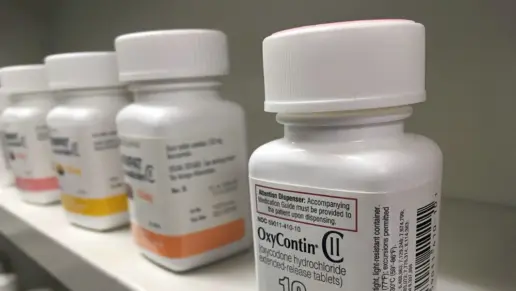Heroin is a highly addictive drug that poses serious risks and side effects to your physical and mental health. Continued use of the drug could lead to heroin addiction.
Heroin addiction is treatable, but the course of treatment best for you will depend on the severity of your condition and other factors. Treatment often includes detox, medication management, behavioral therapy, and ongoing support.
Key Facts
- Heroin is an opioid drug that is highly addictive.
- Treatment for heroin addiction may include medications such as methadone, buprenorphine, or naltrexone.
- Behavioral therapies used to treat heroin addiction include CBT, CM, MI, group and family therapy.
- Levels of treatment range from inpatient to various levels of outpatient.
- Low-cost and free treatment options exist for those who do not have insurance coverage.
Understanding Heroin Addiction
What Is Heroin and How Is It Used?
Heroin is a drug that is processed from morphine and derived from the poppy plant. The street forms of the drug usually appear in a white or brown powder that can be snorted or smoked. An “impure” form of heroin is known as black tar and is typically dissolved, diluted, and then injected into the veins.
Heroin has a rapid blood-to-brain transfer, which provides a quick, intense, and short-lived euphoric feeling, as well as a warm flushing of the skin, dry mouth, and a heavy feeling in the extremities.
Why It’s So Addictive (Opioid Use Disorder)
Heroin is an opioid, which means it binds to the opioid receptors in your brain. When it does this, your brain releases a chemical called dopamine, which produces euphoric feelings in the brain and body.
Dopamine is part of the “reward center” of the brain. When it is released, it feels good, leaving you wanting more and seeking your next dopamine release. This cycle reinforces use of the drug to chase that good feeling.
After a while, your body begins to build a tolerance to the drug. This means you will need to take more of it to get the same effect, which furthers your journey into heroin addiction. Stopping use of the drug will cause unpleasant withdrawal symptoms, which also perpetuates the cycle of use.
Scope of the Crisis: Current Stats and Trends
To better understand the scope of the heroin crisis in the U.S., consider some of these statistics:
80% of heroin overdose deaths in 2022 involved synthetic fentanyl.
Signs You May Need Treatment
Regular use of heroin will have short-term and long-term effects on your mental health, behaviors, and physical well-being. There are some specific signs to look for when deciding whether or not you need treatment for your drug use.
Physical, Psychological, and Behavioral Warning Signs
Some of the warning signs to look for that you or a loved one may have heroin use disorder include:
- Pinpoint pupils
- Head nodding
- Track marks from intravenous use
- Chronic constipation
- Mood swings
- Acting secretively or hiding things
- Missing money or valuables
Health Risks, Complications, and Overdose Dangers
Some of the serious health risks involved with heroin use include:
- Endocarditis
- Collapsed veins
- Hep C and HIV
- Effects of fentanyl contamination
Overdosing on heroin is possible and can be life-threatening. If you or someone you are with is using heroin and then has blue lips or slowed breathing, call 911 immediately. If you have access to it, give naloxone as soon as possible to reverse the overdose.
When to Seek Professional Help (Red-Flag Scenarios)
Recognizing the signs that you need help is just the first step. While it is possible to quit using heroin on your own, it can be extremely difficult due to the highly addictive nature of the drug.
Consider seeking professional help if:
- You are using heroin daily.
- You have attempted to quit before and failed.
- You find yourself in legal trouble.
- Your use is interfering with your job and daily responsibilities.
- You are experiencing suicidal thoughts.
Medical Stabilization
The first step in beginning your recovery journey with heroin use disorder is to ensure you are medically stabilized.
Medical Detox and Withdrawal Management
Detoxing is the process your body goes through to rid itself of the drug. Detoxing from heroin will cause withdrawal symptoms that can be managed with medication. The timeline for detoxification is different for each person, but it typically follows a similar pattern.
About 24-48 hours after stopping use, you may see an onset of symptoms such as:
- Muscle aches
- Teary eyes
- Runny nose
- Sweating
- Insomnia
Around days 3-5 is usually when symptoms peak and may include:
- Nausea
- Vomiting
- Diarrhea
- Abdominal cramps
- Intense cravings to use heroin
Around day 7 and beyond, most physical symptoms will begin to subside, but psychological symptoms such as depression, anxiety, and cravings may continue and even worsen.
Medications that can help alleviate some withdrawal symptoms include buprenorphine, clonidine, and anti-nausea medications.
Overdose Reversal and Harm Reduction (Naloxone, Fentanyl Test Strips)
You can take steps to prepare to reverse overdose symptoms and avoid dangerous versions of heroin that are mixed with fentanyl.
A few harm-reduction tips include:
- Carry naloxone nasal spray to reverse overdose symptoms
- Train yourself, friends and family in rescue breathing
- Obtain test supplies to detect fentanyl in drugs you plan to use
Medication-Assisted Treatment (MAT/MOUD)
Not all drugs have FDA-approved medications that can help with treatment, but heroin does have a few. Research has shown that people with heroin use disorder who are treated with these medications are less likely to have or die from an overdose than those not receiving the medication.
Methadone Maintenance
Methadone is a medication commonly used to treat opioid use disorder. It is a full opioid agonist, which means it works to activate the opioid receptors in the brain. This helps to curb cravings for the drug as well as block the effects opioids typically have on the brain.
Methadone treatment begins with daily clinic dosing under the supervision of a doctor. As your condition progresses and you are deemed healthy enough, you may be allowed to take methadone with you to continue treatments on your own at home.
Studies have shown that, among those in methadone maintenance treatment, about 65 to 70 percent reported regular heroin use in the year before entering treatment. For those who stayed in treatment at least 3 months, that dropped to 25 to 30 percent during treatment.
Buprenorphine/Suboxone and Long-Acting Injectables
Buprenorphine and suboxone are very similar to methadone in that they are opioid agonists; however, these drugs are only partial agonists, meaning they only partially activate the opioid receptors. This partial activation lowers the risk of overdose compared to methadone, but dependence on buprenorphine can still occur.
Like methadone, this drug can reduce cravings and the effects opioids have on your system. This drug can be prescribed by a doctor and taken at home or given as a long-acting injectable medication in the doctor’s office. It is also sometimes used in hospital and inpatient settings during the detox process.
Naltrexone/Vivitrol and Opioid Antagonists
Naltrexone is a medication that works to block opioid receptors in the brain. This means that if you have a relapse and begin using heroin again while taking naltrexone, you will be less likely to experience the euphoric feelings usually associated with heroin.
After 7 to 10 Days
Naltrexone also reduces opioid cravings. This can help with long-term recovery and combating relapses. The drug can only be given after you have been free of heroin use for at least 7-10 days.
Managing Withdrawal with Lofexidine and Adjunct Medications
Lofexidine is a drug that provides relief of autonomic symptoms that often accompany heroin withdrawal, such as sweating, chills, rapid heart rate, high blood pressure, anxiety, and restlessness. This is not used as a long-term treatment medication, but can act as a bridge for patients who are waiting to start MAT.
Behavioral and Psychosocial Therapies
Medical treatment for heroin use disorder is often used in tandem with therapy to ensure a full recovery. The main therapeutic techniques used are CBT, CM, MI, group, and family therapy.
Cognitive-Behavioral Therapy (CBT)
Cognitive behavioral therapy is an evidence-based approach to mental health that seeks to help you identify triggers and unhealthy thought patterns so you can create new thought patterns leading to new behaviors.
Some of the techniques involve exercises where you reframe some of your old thinking patterns. For example, you may practice changing statements like “I need to use heroin to feel better” to something like “I crave heroin, but I can cope with that feeling until it moves on.”
Homework assignments with CBT might include:
- Keeping a craving log
- Journaling thoughts and feelings
- Listing triggers and corresponding coping skills
- Practicing mindfulness and grounding techniques
Contingency Management
Contingency management (CM) is another technique, most often used in the treatment of cocaine addiction. This approach utilizes a voucher or prize system to incentivize positive behaviors over negative ones.
For example, a patient may be rewarded for a negative urine drug screen or for following through on health markers such as HIV testing or getting vaccines. One study shows that individuals using CM were four times more likely to remain abstinent while in care than those not using the approach.
Motivational Interviewing (MI) and Stages of Change
MI is an approach used in therapy where open-ended questions are used by the therapist to steer the patient towards meaningful change.
This type of therapy is particularly helpful in resolving ambivalence or hesitation on the part of the patient. The therapist will ask questions and reflect back to the patient what they are hearing as a way of evoking motivation to change.
Group and Family Therapy
The power behind group therapy follows Irvin Yalom’s theory of universality. This is where group members feel less alone in their struggles as they hear their peers share their experiences. Group therapy helps to reduce shame for patients, which is very prevalent in substance use disorders.
Family sessions help patients and their loved ones align boundaries and address codependency that often exists in relationships with those who have heroin addiction. Family members also become educated on their loved one’s journey and how to help support them with ongoing recovery.
Trauma-Informed and Dual-Diagnosis Care
Utilizing a trauma-informed approach to therapy is also important for many patients in rehab. Some facilities will assess you for post-traumatic stress disorder (PTSD) and other conditions that are frequently associated with trauma exposure..
If other diagnoses are present besides the heroin use disorder, then treatment will integrate trauma-informed therapies such as eye movement desensitization reprocessing (EMDR) or dialectical behavioral therapy (DBT), which are known to help with trauma-related conditions.
Dual diagnosis care means that your treatment team will coordinate care between all providers and across medication and therapies to prevent symptom-triggered relapse.
Levels of Care and Program Types
There are different levels of care available depending on your specific needs.
Inpatient Residential Rehab
If you are admitted into inpatient or residential rehab, you can expect:
- 24/7 supervision
- Multiple therapies daily
- Remaining in the facility overnight
- Medication management
Inpatient care is ideal for patients experiencing unstable housing or needing around-the-clock medical supervision. The stay usually lasts about 28-60 days and requires preauthorization of insurance coverage.
Partial Hospitalization Program (PHP)
PHP is a step down from inpatient care.
You can expect:
- 5-6 hours per day of clinical care
- Spend your nights at home
- Group therapy
- Life-skills training
- Medication checks
PHP often acts as a bridge between higher level of care (inpatient) and lower level of care (outpatient).
Intensive Outpatient Program (IOP)
IOP is a version of outpatient treatment that allows for more flexibility in your schedule than inpatient or PHP. It is ideal for working adults who may not be able to commit as much time daily as other programs require.
Typically, you can expect:
- 9–12 hours per week of treatment sessions
- Evening sessions available for working adults
- Random drug tests to maintain accountability
- Ongoing medication checks
- Group and individual therapy
Standard Outpatient and Telehealth Options
Standard outpatient is the least intensive level of care provided and is sometimes available through telehealth. You can expect weekly sessions with a therapist and occasional check-ins with a medical doctor.
There are digital CBT and recovery apps that you can download and use to complement your weekly therapist contact.
How to Choose the Right Level of Care
It can be difficult to know what level of care you may need, which is why healthcare professionals have developed criteria to assess patient needs and recommend appropriate treatment.
Things to consider when choosing care include:
- Your level of withdrawal risk
- Comorbidities and dual diagnoses
- Your home environment and support system
Talk to a healthcare professional to discuss the best path forward.
Specialized and Holistic Supports
Levels of care are not the only consideration to make when choosing a place to recover. You may have other specialized needs or preferences that will influence your decision.
Demographic-Specific Programs (Women, LGBTQ+, Veterans, Teens)
Several factors may influence your specific needs in treatment, including your age, gender, past trauma, or sexual orientation.
You can consider several options, including:
- Women’s programs that can address pregnancy, childcare, and trauma histories
- LGBTQ+ tracks that provide minority-stress coping skills and affirming peer groups
- Centers that cater to military-related PTSD triggers
- Teen centers that offer peer and family support
Holistic and Complementary Therapies
Some patients like to include holistic approaches with their treatment. This might include techniques such as mindfulness, which is very useful in helping patients increase their stress tolerance and cope with urges to use.
A few other holistic approaches may include:
- Acupuncture
- Nutrition counseling
- Relaxation and yoga
- Herbal remedies
Sober Living Homes and Recovery Housing
Sober living homes are places that offer housing for those leaving a rehab facility who need a place to stay and additional accountability.
Research has shown that those in sober living homes have better outcomes such as increased abstinence and fewer legal problems.
Some of the rules you can expect in a sober-living home include:
- Attending 12-step programs
- Maintaining a drug-free environment
- Curfews
- House meetings
- Undergoing drug screenings
Most sober living homes require you to be employed or attending school to stay there.
Aftercare and Long-Term Recovery
Your recovery does not end when you leave rehab. Your treatment team will work with you to create an aftercare plan that involves relapse prevention planning, peer support and medication management.
Relapse Prevention Planning and Coping Skills
While it can be disappointing to relapse, it’s important to know that it’s a common part of the recovery journey. You can take steps to help prevent relapse, though, including:
- Identifying high-risk people or places
- Learning coping skills for when you have the urge to use
- Creating “if-then” scripts that you can follow if you find yourself tempted to use
- Practicing urge-surfing
- Implementing grounding exercises
- Developing a routine for yourself
12-Step, SMART Recovery, and Peer Support Communities
Another important part of aftercare is regularly attending some type of peer support community. 12-step programs like AA and NA offer a spiritual approach to recovery, while SMART recovery groups are a secular approach based on CBT tools.
Groups and sponsor/mentor relationships help to reduce your isolation, which can lead to using heroin again.
Medication Maintenance, Tapering, and Monitoring
Maintaining your medication even after you leave rehab is also part of preventing relapse.
Research shows that medication-assisted treatment (MAT) can reduce relapse from around 90% within the first year without treatment to 50%.
Tapering off medication should only be done under the guidance of a medical professional and if you have stable housing, employment, and a strong support system.
Lifestyle Changes for Sustainable Sobriety
Making meaningful changes to your lifestyle after rehab will help you sustain sobriety for the long term.
Some of the positive changes might include:
- Improving sleep hygiene
- Maintaining balanced nutrition
- Adding purposeful work or volunteering to your schedule
- Getting involved with hobbies
- Keeping social connections
Costs, Insurance and Access to Care
The cost of treatment can feel daunting, but several options are available to you to pay for care.
Understanding Insurance Coverage (Private, Medicaid, Medicare, ACA Plans)
Parity laws have recently made it a requirement for insurance plans to cover mental health conditions, including substance use disorder.
If you have medical insurance, check with your carrier to find treatment centers that are in-network so that you do not have to pay full cost for treatment. If you live in a Medicaid expansion state and qualify for Medicaid coverage, you can attend a methadone clinic for free.
Financing Without Insurance and Sliding-Scale Options
If you do not have insurance, there are still options available to you, including:
- Grant-funded centers that offer free care
- State block-funded rehab
- Scholarships within certain facilities
- Payment plans
- Crowdsourcing
Using SAMHSA’s Treatment Locator and Telehealth for Rural Access
You can visit FindTreatment.gov to search for centers near you and learn more about how to qualify for free care. You’re able to search by zip code, modality and language.
Filters can be set for opioid treatment programs (OTP) or office-based opioid treatment (OBOT). You can also search for telehealth options that cut out any travel barriers you may have in trying to begin recovery.
Frequently Asked Questions About Heroin Addiction Treatment
The duration of detox may differ from person to person, but it typically lasts a week or two. The acute physical phase of withdrawal symptoms will usually last about 1 week, but medical support can shorten the timespan and alleviate some intensity of symptoms.
Yes, MAT is safe during pregnancy. Methadone and buprenorphine lower fetal stress and are considered far better than the illicit use of opioids during pregnancy. Neonatal abstinence can be managed by utilizing certain approaches, such as rooming-in and breastfeeding.
Medication-assisted treatment coupled with therapy improves your odds of recovery. It’s important to keep in mind that a common part of the recovery process is relapse. Relapse rates for heroin use disorder are similar to other chronic illnesses, such as asthma and hypertension. Experiencing a relapse and entering treatment is common and not indicative of failure.
Yes, you can taper off methadone. There is no standard tapering off schedule, but it’s based on where you are in recovery, your support network, and other individual factors. Usually, a tapering schedule will start after at least 12 months of stability, and a professional will monitor your cravings and any withdrawal symptoms.
Find Treatment for Heroin Addiction Near You
You can find treatment centers near you using the Rehab.com website. The directory lets you filter your search by location, level of care, insurance providers and special programs.
Don’t wait. Reach out today. Call the phone number below to talk to someone about your treatment options and see if your insurance will cover rehab.
Call A Treatment Provider
For a conversation about what treatment options are available to you.
Make a Call
Addiction Centers That Treat Opioid Addiction
Finding facilities near you…




